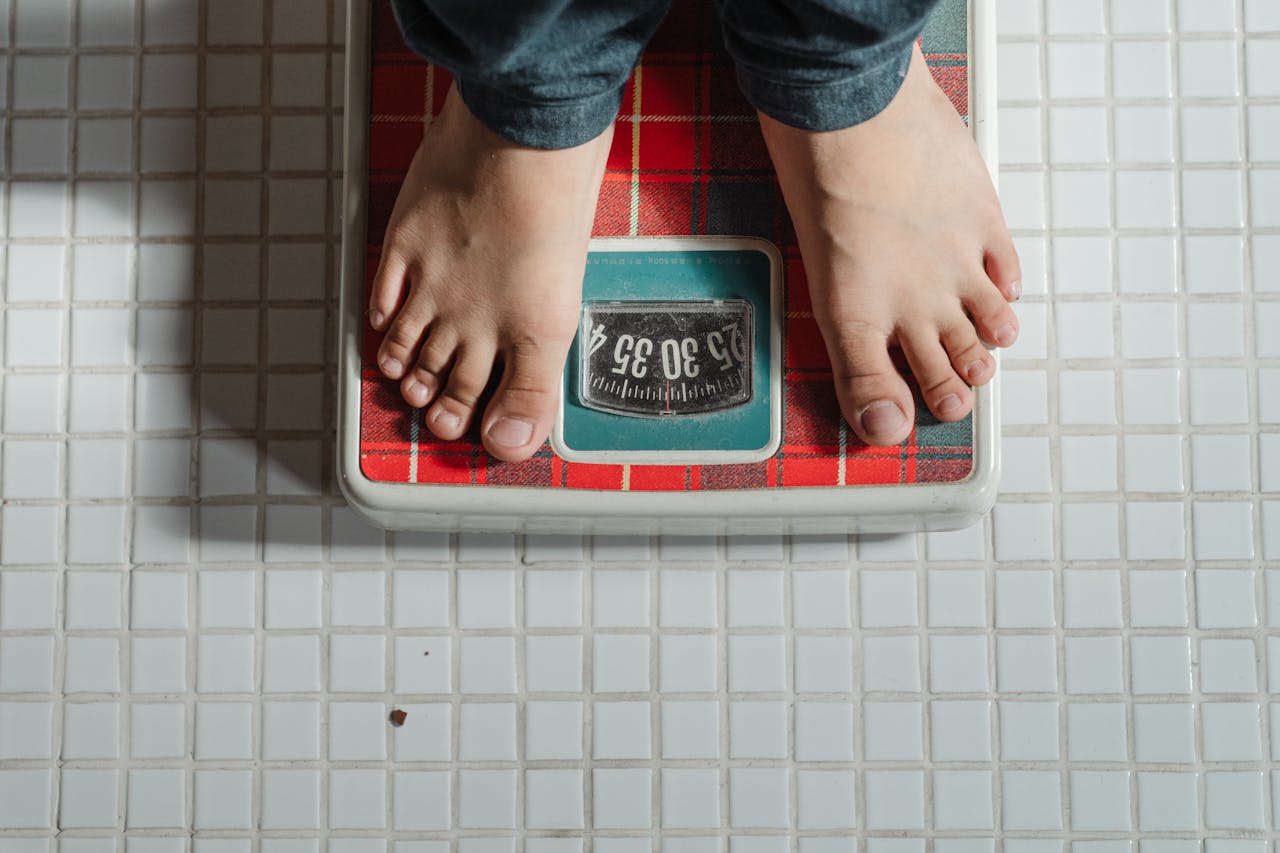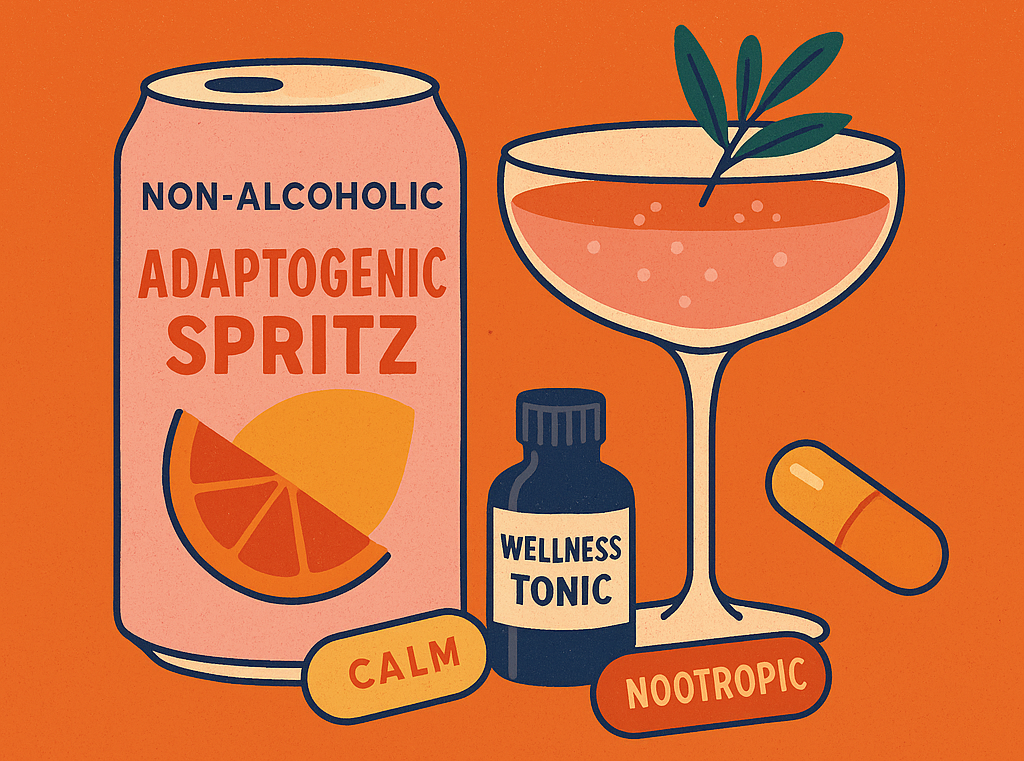Ozempic and other GLP-1 drugs are reshaping food, beauty, alcohol, and belonging. From snack sales to body ideals, marketers are rebranding around the “Ozempic Nation.”

Hooked on Social Media: Keep that data flowing
In chapter 1, I tell the story of coming up with the FADS marketing book while watching television on mute during a workout. With all the layers of noise and messaging peeled away, I saw the subtlety of the ads and the incessant drive toward behavior modification. There it was, on repeat: Food. Alcohol. Drugs. Sex. Brand messages being driven home by invoking pleasure thoughts. Everything marketers need to change one’s entire decision-tree structure, based on the data given so freely, comes right down to those FADS.
How do we get people to buy our product?
For a long time, that was the primary question brands asked. Their ads were designed to get you buy products and services.
But that’s not good enough anymore.
They want more. They want to have a deeper understanding to know why you’re making the decisions you make. They want to drop you into a longer-term dataset so they can change your behavior all together and keep you coming back for more, forever.
Follow us on social media!
In the world of marketing, nothing is more effective than word of mouth marketing. Just about every communications and marketing strategy created is full of ideas to create brand awareness, purchases and long term engagement that will keep the dollars flowing well into the future.
FADS never fail to grab your attention, get you talking, and lull you into giving away your precious data with every pause in the scroll, every little tap, and every subscribe. That’s why they pay comedians, influencers, and celebrities so much to get you to stop and watch.
@funnyasiandude Ever wonder what other cultures real cooking taste like? #ordershef lets you order home cooked meals from amazing local home chefs! We got Mexican this time, Thai next! @Bri Kimmel @Shef ♬ Im gonna take my time – 𝐁 𝐢 𝐮
If they can catch your attention, get you to watch, and even better, delight you with something cool, you might spread the word. You might talk about it with friends, tell people how funny or helpful it was, and you might even take the time to copy a link and share it.
With every interaction, mention and review, you become part of every marketer’s dream and move from the target audience to the engaged audience.
If they get lucky they will hit the jackpot with a viral campaign everyone talks about–or even better–joins in on. These major viral hits can reach users everywhere as blogs, television, podcasts and others scramble what you need to stay on top of the trends and feed that social media addiction.
Remember the #BeerPosterChallenge trend on TikTok from 2021? This challenge was a marketing dream. It spurred tons of great takes on the old sexist beer ads, some fun satire, and gave some precious word of mouth advertising to alcohol brands as people naturally featured their favorite brands in their posters.
What is social media addiction?
It seems we have a problem. At least that’s what I keep hearing. The children are addicted, teens are addicted, even grandparents are addicted to that rush of notifications and likes – they just can’t quit. Not while at school, or working, or even driving, it seems impossible for some to put their phones down (even though it makes everyone miserable). Some people are even dying for the likes.
To counter this there are social media detoxes, cleanses, and even an attention rebellion, as more and more people ditch social, in favor of “real” connection. But as is the case with other addictions, they’re finding that difficult to maintain.
It all started out with positive intentions, the “like button” on Facebook wasn’t initially added to “gamify our attention,” but it wasn’t long before the engagement was noticed. Over the years, an entire industry has risen up around improving user experience, increasing engagement, selling ads, personalization, and keeping those apps as addictive and engaging as possible.
The endless scroll, the notifications, rewards, features… we love everything they do (except Fleets, we all hated Fleets). “It’s as if they’re taking behavioral cocaine and just sprinkling it all over your interface and that’s the thing that keeps you coming back and back and back”, said former Mozilla and Jawbone employee Aza Raskin.
But if the apps are free, why do they care if we use them?
If you’ve read the FADS Marketing book, you know why. It’s all about that sweet sweet data. 2.71 billion humans use a smartphone worldwide and every single time one of them picks that phone up is an opportunity for a brand to get just a couple of seconds of your time. Hopefully that time is spent buying something, but if not, they at least want a little bit of information from you. And while there are some laws in place around data collection practices they don’t really always have to ask before they take, store, and sell what they know about you to someone else.
When we use social media, we’re giving away everything necessary to understand our behaviors, motivations, fears, and desires. Even without any personally identifiable information, the data is fascinating and useful as marketers develop target audiences, marketing personas, and digital marketing strategies.
Now, we’re not saying market research didn’t exist before social media. Of course marketers were always buying research reports, collecting information from consumers, and trying to target audiences with effective messages to sell goods and services. It’s just that social media has made it much, much easier to do, and instead of getting paid as a test subject or filling out any silly consent forms, you click a box agreeing to terms and conditions, and you get to use their app for free!
The Guardian’s Richard Seymour reported, “They use incentives and choke points to keep people committed to the machine. They manipulate ends for the benefit of their real clients – other firms. They bombard us with stimuli, learning from our responses, the better to teach us how to be the market demographic we have been identified as.”
You’ll be back – so find that middle ground
Tim Cook has said, when it comes to his nephew: “There are some things that I won’t allow. I don’t want them on a social network.” And it’s not just tech executives, parents all over the world are concerned about the impacts of social media on their children, and on themselves. They know what they have created.
The fact is that you’ll be back. They know you’ll be back. It doesn’t matter how much we complain, we never stay away forever and regulations almost always miss the point. Social media has become part of our daily lives, much like video games, television, radio, and telephones–all things we were warned would be the downfall of society.
And that’s ok, because as much as we like to talk about all the negative aspects of social media use, it’s not all bad. It can make us laugh, it can encourage us to get involved, teach us how to do something, and connect us across the miles.
So when you’re using your devices, use those algorithms in your favor by filling your social media and news feeds with things that make you happy. Doom scrolling, rage posting and trolling never make anyone feel good, so be smart about what you consume and how you engage. Take a break if you’re becoming miserable. As Like button co-creator Justin Rosenstein said in Vice, “These are our lives. Our precious, finite, mortal lives. And if we’re not vigilant, computers and mobile devices will guide our attention poorly.”
You’ve already opted in, so you might as well learn what you can about how it all works and take control of what you can.
The people behind the scenes – such as myself – we’re not interested in changing your mind, and we don’t want to waste time or money capturing you in a random moment. We’re laser-focused on changing the very essence of who you are by modifying your behavior. Permanently. Welcome to the new world. We’re designing it for you, around you, and most of all – in your head. We count on the fact that either you don’t know, or you are indifferent. And if you’re like most people, it’s both.
In short, thanks for your data.
They've got their hooks in you.
FADS rise quickly, burn hot and fall out. They say you're fat, you're no fun, you need to relax, and you might even die alone.
In fact, FADS bank on the fact that you already believe all of that.
Ready to learn how it works?


